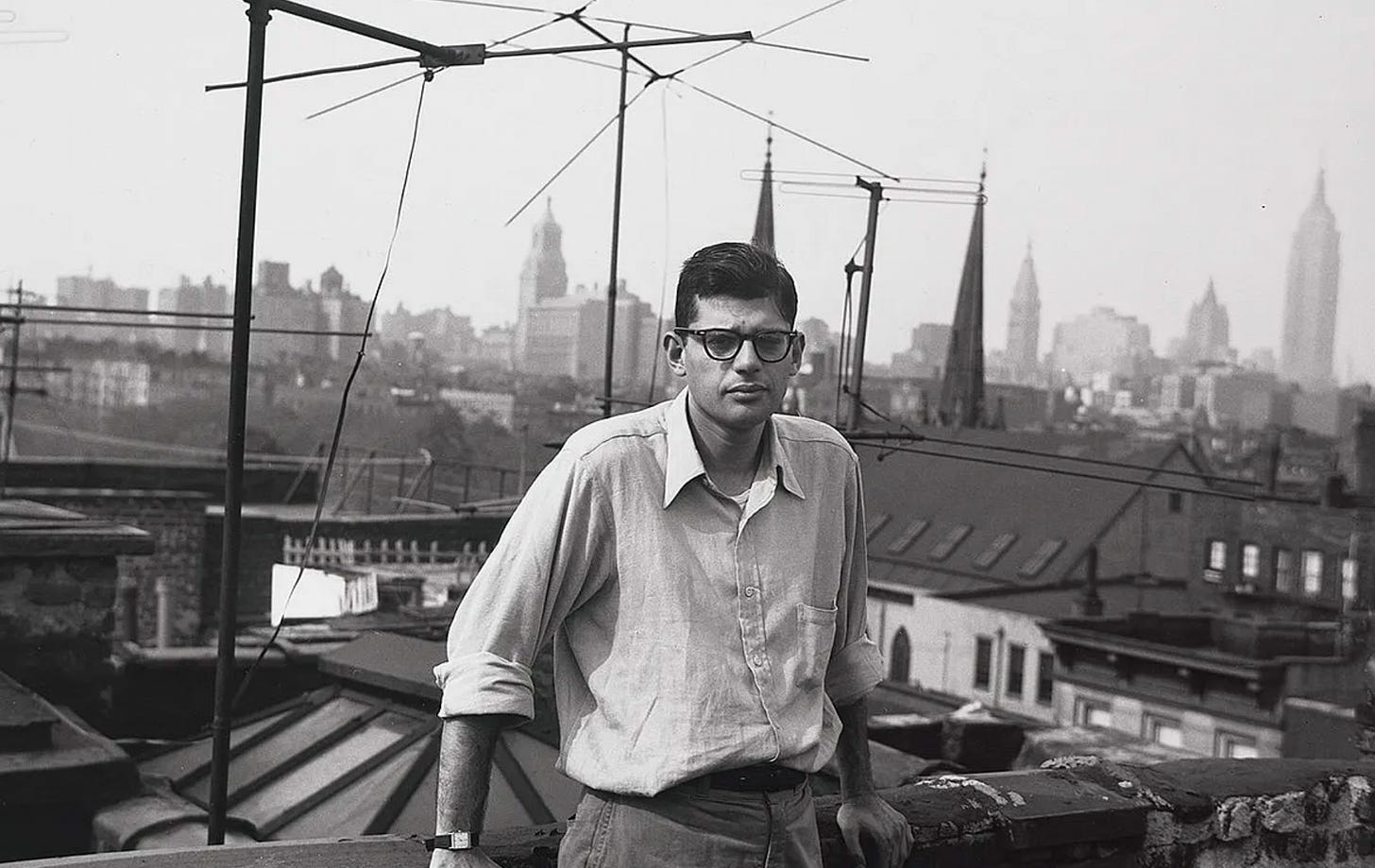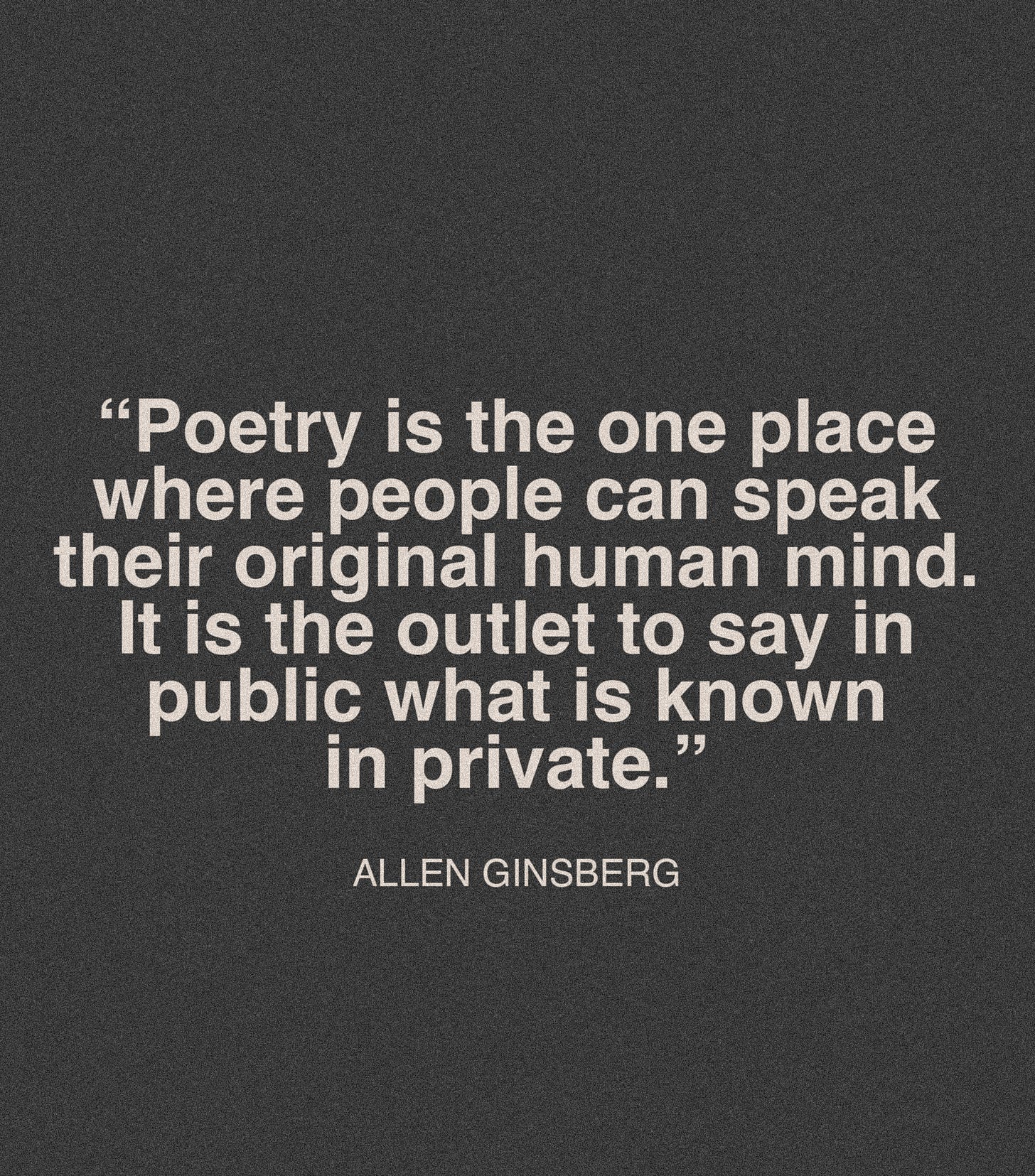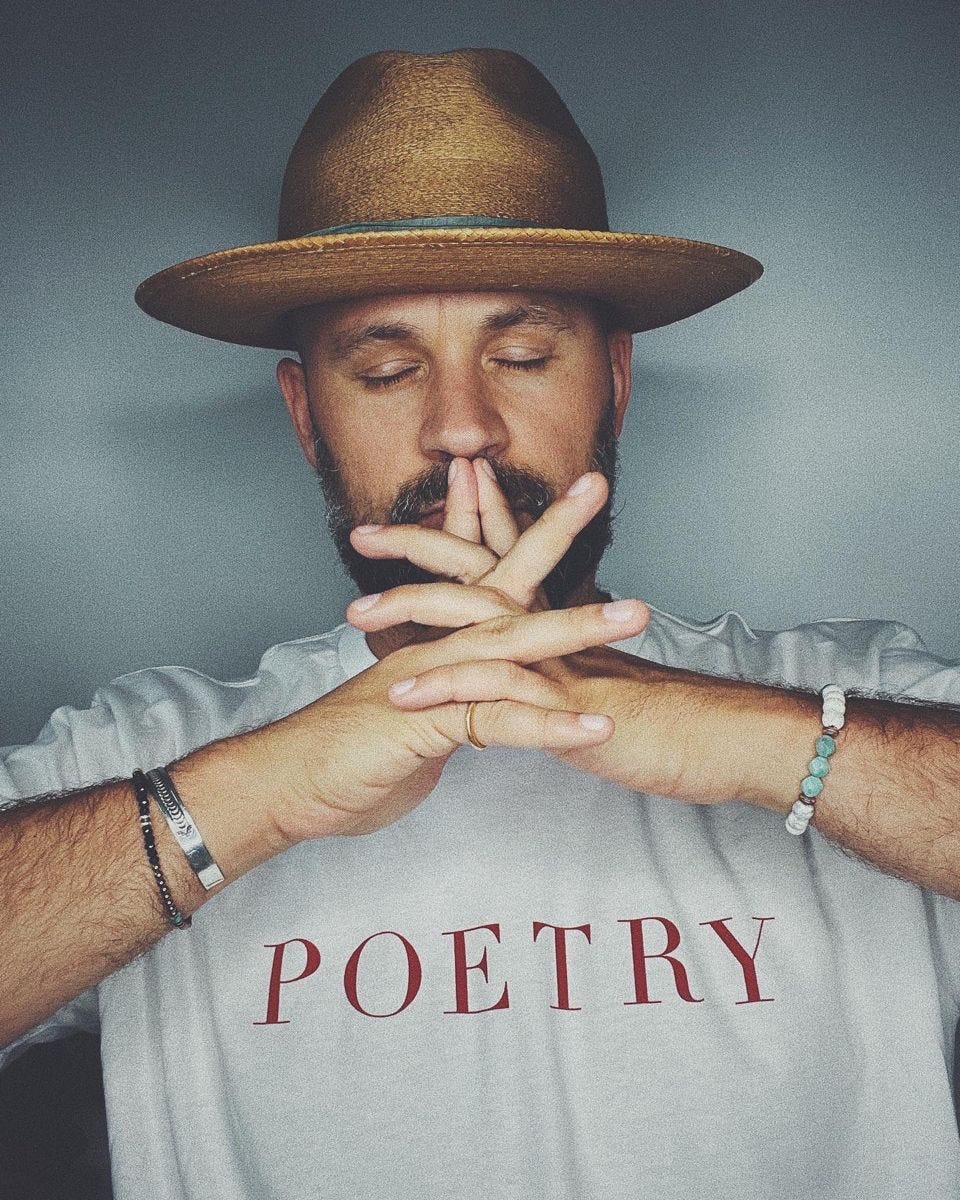When Allen Ginsberg wrote his iconic poem “Howl” in 1955, he was going through his own personal apocalypse. After being suspended from Columbia University for letting his friends harbor stolen property in his dorm room, Ginsberg set out to become a poet.
This position – “poet” – is not the sort of job one can apply for. There are no credentials or certifications. It’s a title earned through an unwavering dedication to exploring and expressing the depth of the felt human experience. All poets walk their own path and reflect back honestly the emotions and truth they discover.
Ginsberg worked odd jobs – dishwasher, factory worker, advertising copywriter – while experimenting with psychedelics, going to jazz clubs, debating literature and politics with street philosophers, and honing his craft as a writer.
The cultural vibe of post-war America, which valued conformity over individuality, was not welcoming to outsiders like Ginsberg. In 1950 he was admitted to a mental hospital (considered a treatment for his homosexuality). But even in times of repression the creative human spirit finds a way to express itself.
By 1955, Ginsberg was living in the slums of lower Manhattan. His friends were junkies, poets, academic outsiders, and queers – literary street mystics searching for a new message from God in the drunken night.
One of Ginsberg’s best friends, the novelist Jack Kerouac, had been studying Zen Buddhism and developed a writing technique called Spontaneous Prose. Emphasizing free expression over rigid formulas, Kerouac would enter a subconscious flow state and pour his naked mind onto the page without editing or second-guessing. “First thought, best thought,” he said.
Deciding to practice Spontaneous Prose, Allen Ginsberg sat down in his Lower East Side apartment and transmitted a stream-of-consciousness vision into his typewriter. Ginsberg never intended to publish “Howl.” It was too naked, too vulnerable. But Kerouac persuaded him, and it went on to become one of the most acclaimed poems of the 20th Century.
The uncensored, spontaneous expression of writers like Kerouac and Ginsberg helped usher in a new era of liberated consciousness, which evolved into the hippie movement a decade later.
Poetry is more than cute musings in rhyming couplets. Poetry can be a revolution, an awakening, and a form of spiritual and emotional self-care. In a world of rigid thinking and division, the language of poetry transcends artificial boundaries to strike a universal human chord. Reading and writing poetry helps to open the mind and expand our capacity to feel.
In times of crisis and uncertainty, poetry is more important than ever.
I’m excited to introduce Poetry Club, a 3-week virtual writing circle.
Poetry is therapy, an introspective respite from the storm, a practice of keeping your heart open and staying soft even when life gets hard. What we don't express will be suppressed. Writing and sharing poetry is a form of spiritual and emotional self-care.
I wanted to create a space for poets and aspiring poets from all walks of life and levels of experience to gather to learn, write, and share.
We’re going to learn about the history of poetry, experiment with new writing techniques and rituals, and connect with a global community of pets.
3 virtual group sessions
Weekly homework and writing rituals
Sharing circles
Tips and resources for getting published
Use code EARLYBIRD for 20% off – this week only.








